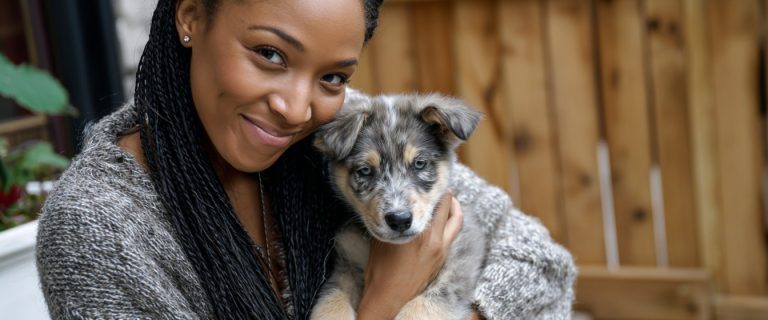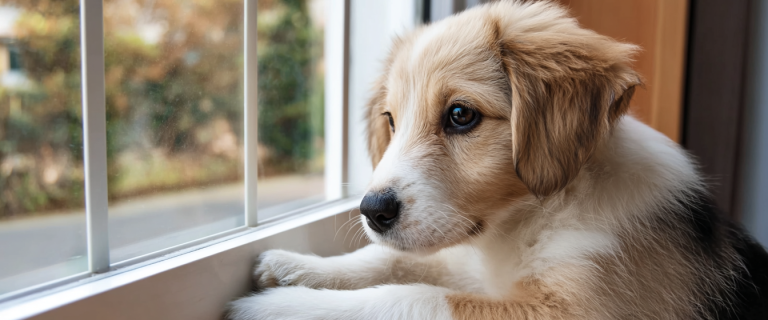A common question I hear often is, “Why do dogs turn on their owners?”
Dogs attack for a variety of reasons, and most of them are generally rooted in causes that make some kind of sense when an attack happens to a stranger.
However, when a dog turns on his owner, it’s a mystifying occurrence to most.
After all, their owner is the person they look to for safety, affection, and sustenance, so it seems almost unthinkable that they would turn on their owners.
However, it does happen, so let’s take a look at the question: why do dogs turn on their owners.
Why Do Dogs Turn on Their Owners?
That’s a bit of a loaded question and not a simple one. Contrary to popular belief dogs rarely turn on their owners for no reason whatsoever.
Before we get into why dogs attack their owners, it’s important to understand the mind of a dog.
Dogs are Instinct-Driven
Dogs don’t think the way humans do. Dogs operate on instinct while humans operate on reason.
Even though dogs are intelligent creatures, they’re aren’t calculating.
They don’t have a sense of right or wrong. For the most part, dogs are reactive, cause-and-effect creatures.
Training our dogs is a matter of teaching them that the cause of getting treats is obeying commands.
Their reactive minds cause them to do things like chase squirrels and other small animals.
Our dogs are also pack animals, so they understand hierarchy.
However, just as with their wolf ancestors, a dog’s instinct can cause it to act aggressively, even towards his pack leader – his owner.
It’s these powerful instincts that most often cause dog attacks, especially when it comes to attacks on owners.
Causes of Dog Attacks to Owners

The question: why do dogs turn on their owners is best answered by breaking it down into different causes.
There are actually quite a lot of reasons that a dog might turn on his owner, and only one of them is one that can happen out of the blue.
That is an important distinction to make because knowing why a dog might turn is the key to avoiding dangerous situations for yourself and your dog.
In reality, almost all owner attacks can be considered accidental.
Although the dog might purposely attack his owner, the reasoning is usually faulty and instinct-driven.
That means that understanding why dogs turn is key to preventing them from turning.
Prey Drive

Prey drive is a big reason that some dogs end up attacking their owners.
Dogs are highly intelligent animals, but even more, they are highly instinctual animals.
Prey drive is part of that, especially in breeds that were developed specifically for hunting.
Most people these days aren’t hunters which means that their dogs have no outlet for this behavior. That can lead to tragic occurrences.
For example, a breed with a high prey drive, such as a greyhound, might chase squirrels, other small animals, or even a child who is taunting him up and down a fence line.
It’s in his DNA to do so.
However, sometimes trying to stop him from this action can lead to an accidental bite due to overstimulation.
Here’s a scenario.
The dog is chasing a creature or person up and down a fence line and is now in a heightened, prey-driven state.
His owner comes out to bring him back inside so he can calm down.
When the owner grabs his dog’s collar, the dog’s prey drive, already in fifth gear, instructs the dog to turn and bite the hand.
The dog isn’t angry at his owner. He’s not punishing his master.
He is simply reacting to the DNA-engrained instinct that his breeding has produced in his brain.
Territory or Resource Guarding (Or Both)
Territory or resource guarding can be another answer to the question: why do dogs turn on their owners.
Dogs are highly territorial creatures, and while some dogs may welcome visitors, others are quite such gracious hosts.
When new people or animals are introduced to the home, the dog might feel that his territory or the possessions within his territory are being threatened.
This can put him in a heightened state of guarding both his home and his belongings.
When a dog enters a state like this, it sometimes doesn’t take much to cause an instinctive bite to occur.
For example, if your dog is guarding a toy or bone, and you reach down to pick it up – even if it’s just to move it to another spot in the house – your dog could conceivably bite your hand due to his instinct to guard.
This is most likely to occur when other people or animals are over, and he’s been really revved up.
Stress

Stress is a huge culprit in dog bites, whether they be to strangers, other dogs, or owners.
Dogs are creatures of habit. That’s why training works so well.
However, when that routine is disrupted, it can cause a lot of stress. When a dog enters a stress state, it might become too much for him.
When that occurs, it is all to easy for him to instinctively bite out at another animal or human.
He is in a state of fight or flight, and there is nowhere to fly to. That only leaves the fighting.
Situations that can cause heightened stress include:
- Overnight Guests
- Holiday Crowds in the Home
- Fireworks
- Severe Weather
Pain
Pain can also cause reactive biting and snapping.
When dogs are in pain, their instincts tell them to keep everything away from the painful part of their body.
That instinct can easily lead to lashing out with a bite.
Something as simple as accidentally stepping on your dog’s tail can cause him to turn instinctively and bite at what appears to be some sort of attack.
Snapping and biting can also occur if your dog is in chronic pain or has an injured body part that is jostled or bumped, causing intense pain.
pain response triggers his instinct to protect his body from whatever is “attacking” it.
Mental Illness
You might not realize it, but dogs can have mental illness much the same way the people can.
This is the one case where there may be no precursor at all to an attack. In many instances, this is due to poor breeding or inbreeding.
It’s one of the most tragic answers to the question: why do dogs turn on their owners.
Whether a dog has something like OCD, separation anxiety, excessive fear, or excessive aggression, any of these can cause a dog to bite anything or anyone, even his owner.
These mental illnesses all put a dog in a heightened state of either fear, aggression, or compulsion.
In any of these, an unexpected intrusion into that scenario like a hand or foot can be cause for a bite.
Mental Illness can present in a variety of ways.
- OCD – Typical signs include chasing the tail, excessive licking, and chasing shadows or reflections.
- Separation Anxiety – Typical signs include excessive barking, destructive tendencies, soiling the home, and pacing.
- Excessive Fear – Typical symptoms include hiding, escape behavior, shaking, drooling, panting, loss of appetite, aggression, and self-destructive behavior.
Why Do Dogs Turn On Their Owners? The Answer Can Be the Solution
Now that you know the answer to “why do dogs turn on their owners”, you can help avoid these situations.
As you can see in the information above, there are several reasons that a dog might attack anyone, including his owner.
Knowing these reasons can help you avoid that outcome.
Knowing your dog and what he reacts negatively to can help you keep him feeling good and avoid any situation that might lead to a dog bite.
Have you ever dealt with a dog turning on you? Share your experiences below.
Author
-

A former Veterinary Assistant at Southwest Animal Care Hospital, Ben is an animal lover, blogger, and all-around geek. Along with writing for DogVills, Ben runs his own virtual assistant company, BizzyBim.
View all posts



